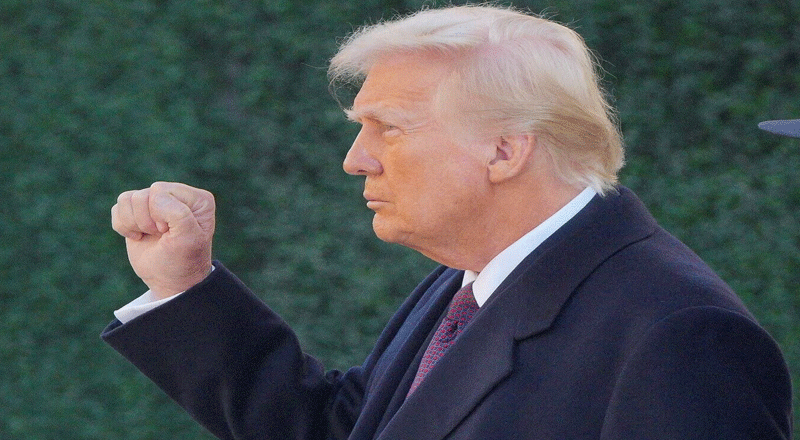U.S. President Donald Trump reignited the immigration debate by issuing an executive order challenging birthright citizenship, a principle that has been a cornerstone of American identity for over 150 years. His policy aimed to restrict automatic citizenship for certain U.S.-born children, sparking intense legal and political controversy.
This move was part of Trump’s broader immigration crackdown, reflecting his administration’s hardline stance on undocumented immigrants. However, questions remain: What is birthright citizenship, and does the president have the authority to revoke it?
Understanding Birthright Citizenship
Birthright citizenship, enshrined in the 14th Amendment of the U.S. Constitution (1868), guarantees citizenship to “all persons born or naturalized in the United States and subject to the jurisdiction thereof.” This principle ensures that anyone born on American soil is automatically granted U.S. citizenship, regardless of their parents’ immigration status.
The Immigration and Nationality Act of 1952 reaffirmed this, stating that U.S.-born children are granted citizenship at birth, with limited exceptions.
Trump’s Executive Order: A Drastic Shift
Trump’s executive order sought to reinterpret the 14th Amendment by restricting birthright citizenship. Under this policy:
- Children born in the U.S. to undocumented immigrants would not be granted citizenship.
- Babies born to temporary visa holders (such as students and tourists) would also be ineligible unless the father was a U.S. citizen or lawful permanent resident.
Trump justified this move by arguing that birthright citizenship had been misused by undocumented immigrants and “birth tourism” — where foreign nationals visit the U.S. solely to give birth and secure American citizenship for their child.
Legal Precedents and Supreme Court Interpretation
While the Supreme Court has upheld birthright citizenship in past rulings, it has never specifically addressed whether it applies to children of undocumented immigrants.
- In the United States v. Wong Kim Ark (1898) case, the Court ruled that a child born to lawful Chinese immigrants was a U.S. citizen under the 14th Amendment.
- In Elk v. Wilkins (1884), the Court denied citizenship to a Native American, arguing that he was not originally subject to U.S. jurisdiction.
Trump’s legal team argued that the jurisdiction clause of the 14th Amendment excluded children of undocumented immigrants, a claim widely disputed by constitutional scholars.
Opposition and Legal Challenges
Trump’s order immediately faced strong legal challenges, with:
- 18 Democratic-led states and Washington, D.C. filing lawsuits to block the order.
- Immigration advocacy groups arguing that the executive order was unconstitutional and usurped Congress’s legislative power.
Legal experts pointed out that if birthright citizenship were to be abolished, it would require a constitutional amendment—a long and difficult process requiring approval from two-thirds of Congress and three-quarters of state legislatures.
Can a President End Birthright Citizenship?
Most legal scholars agree that Trump’s order was unlikely to survive judicial review because:
- The 14th Amendment explicitly grants citizenship to U.S.-born individuals.
- The Constitution overrides executive orders or presidential directives.
- Only Congress and the states can amend the Constitution.
Therefore, any attempt to end birthright citizenship through an executive order is seen as legally dubious and would face significant legal hurdles.
To conclude, Trump’s challenge to birthright citizenship was part of his broader immigration policy but faced near-immediate legal resistance. The principle of granting citizenship by birth has been deeply embedded in the U.S. legal system for over 150 years, making it difficult to change without a constitutional amendment.
While Trump’s immigration policies shaped political discourse, the legal foundation of birthright citizenship remains strong. Future administrations may revisit the issue, but any significant change would require far more than a presidential order—it would need a fundamental shift in U.S. constitutional law.
(With inputs from agencies)





